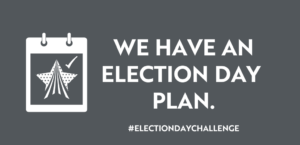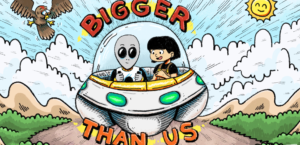Bring Yourself to Work Day, Every Day
If I had the opportunity to share one word of advice with someone just entering the workforce, it would be to bring yourself to work as soon as possible.
And for employers, it would be to allow your employees to bring themselves to work as soon as possible.
Enough with the interview where every candidate engages in the charade of “I’ll be whatever you want me to be as long as I get the job”, and from the employer’s point of view, “I really want you to fit in with everyone else here.”
If we really want to engage in diverse backgrounds and opinions, we need to start thinking and behaving in a radically different way. What if instead of trying to figure out where people can fit our molds, we see what imprint they can make when their identity is welcome?
An emphasis on fitting in isn’t only about supporting the individual. Time and time again, studies have shown that in the long run, organizations that allow for more diverse points of view are more innovative and profitable than monoculture organizations. Diversity is a cornerstone of resiliency. And as we’re learning in this recent pandemic, resiliency is the covert hero of success.
So, how can we make a more accepting universal work culture possible? First, there must be an agreement on both sides that there is no progress without change. It also needs to be understood that at times, change can be difficult, and achieving it can be complex.
“Be yourself; everyone else is already taken.”
– Oscar Wilde
We often tell children to be themselves, but what happens when they’re punished for being different?
In his book Long Walk to Freedom, Nelson Mandela explains “The education I received was a British education, in which British ideas, British culture, British institutions, were automatically assumed to be superior.”
And what happens when you’re raised in a culture that believes it’s superior? I can tell you from personal experience that you work as hard as you can to fit in. Growing up in London during the ’70s and ’80s, I was quite often the only Indian kid in most of my classes. I felt how hand-me-down ignorance makes children cruel. So many times I was picked on and bullied because of my race. To be British, to be White, to be Black. I wished on a regular basis that I was anything but Indian, to the point where being Indian was something I started to detest.
I also know from personal experience that there’s only so long you can hide who you truly are. At some point, the real you shines through.
So, why is my story relevant?
Because, as I mentioned, change is hard, and my belief is that acceptance of diversity must start earlier. It must become a mandatory part of the curriculum from K-College. It should be ingrained in our culture from an early age so that as we enter the workforce, it’s not something new or different. Yes, I realize this is a huge undertaking. But imagine how much energy we can save if our efforts go toward preventing the issue instead of reversing the damage.
In Hinduism, there is a concept of dharma, which means being the best version of you and expressing your personal skill and talents to the best of your ability. Living your dharma is living your purpose, and it has a positive ripple effect on the world around us.
Society must allow individuals to express their unique attributes and talents, not only for the sake of diversity and inclusion but also if we want to flourish economically.
There’s no time like the present.
During this pandemic, more and more people are asking the question, “what do I want to do next?” As we hunker down and quarantine with our families, the question of what is important and how can use this opportunity to create lasting change for a better world is making its way through the zeitgeist. The conversation about a more equitable society is also striking a nerve.
Let’s make this moment count. Let us all work towards allowing individuals to express themselves and take a moment to listen with empathy, grace, and a willingness to understand. Let our collective consciousness take the opportunity to reset from the days of the past and say, “you don’t need to hide any part of you.” You bring your entire self to the conversation, and I’ll bring mine. Will we always agree? Of course not. That’s not the point. The point is we really get to be our true selves and society as a whole will benefit from it.
- #240 Michael Sheldrick, Co-Founder of Global Citizen - April 12, 2024
- #239 Vince Beiser, Author of The World in a Grain: The Story of Sand and How It Transformed Civilization - April 12, 2024
- #238 Steve Oldham, CEO of Captura - April 12, 2024


